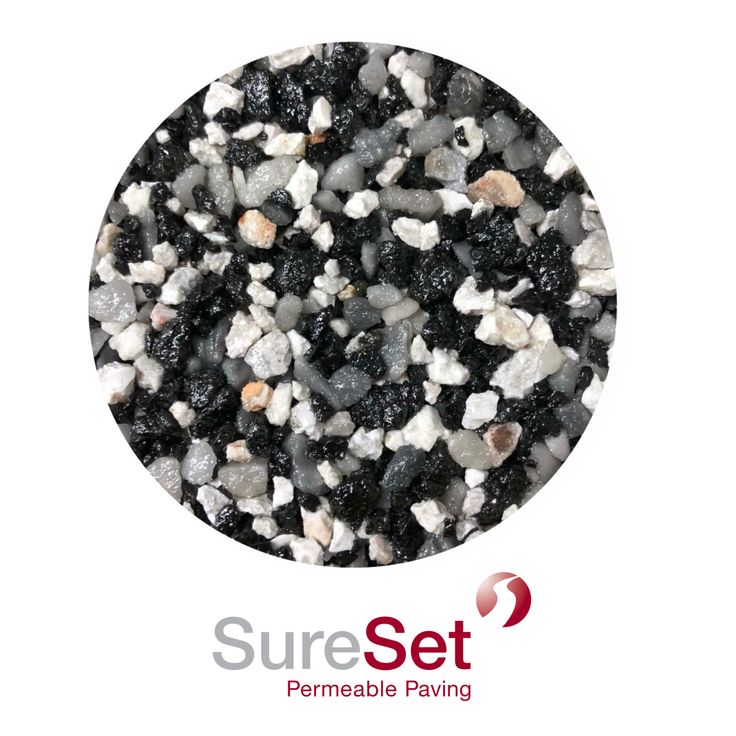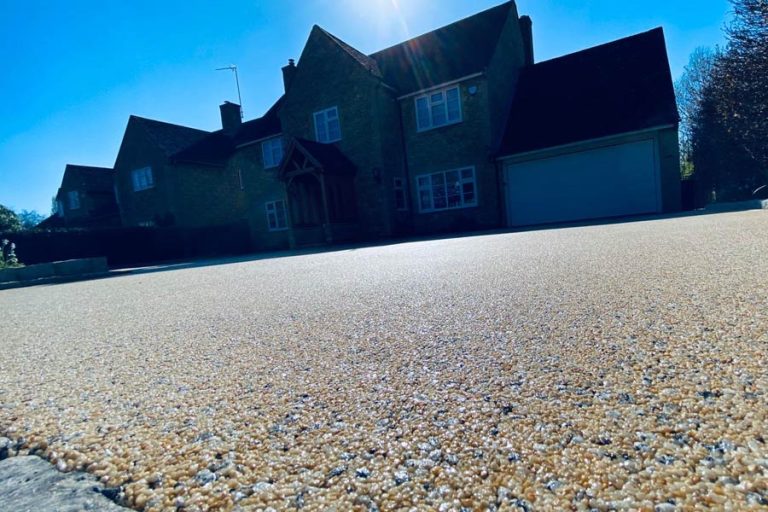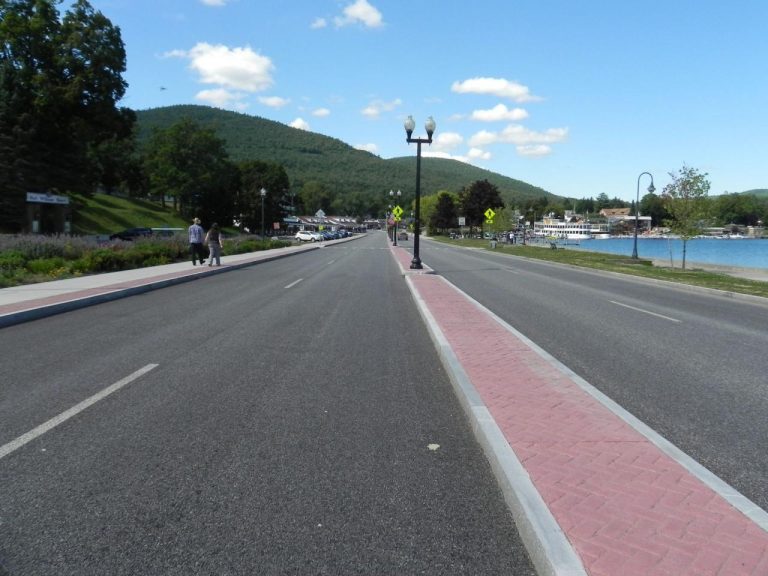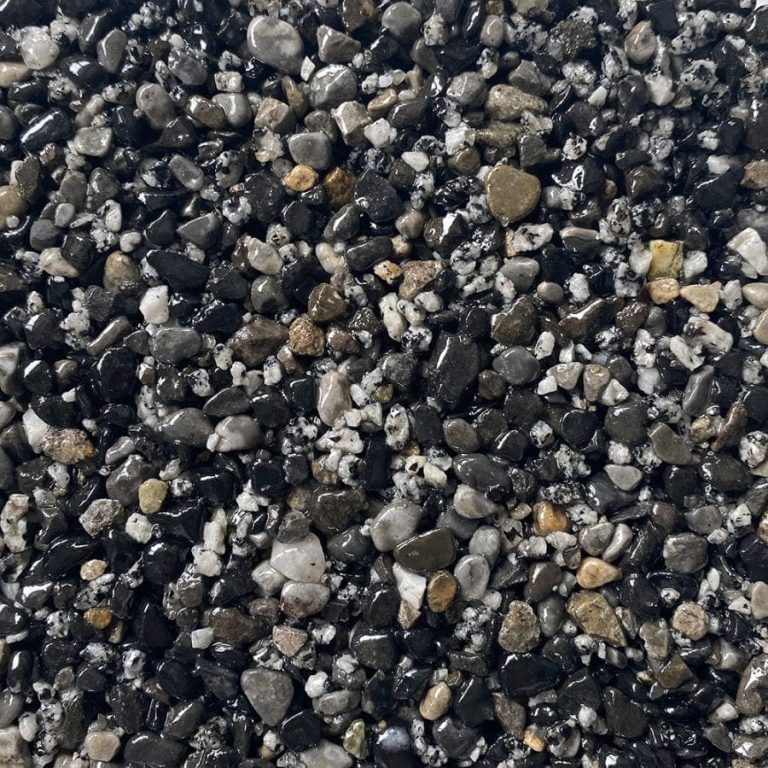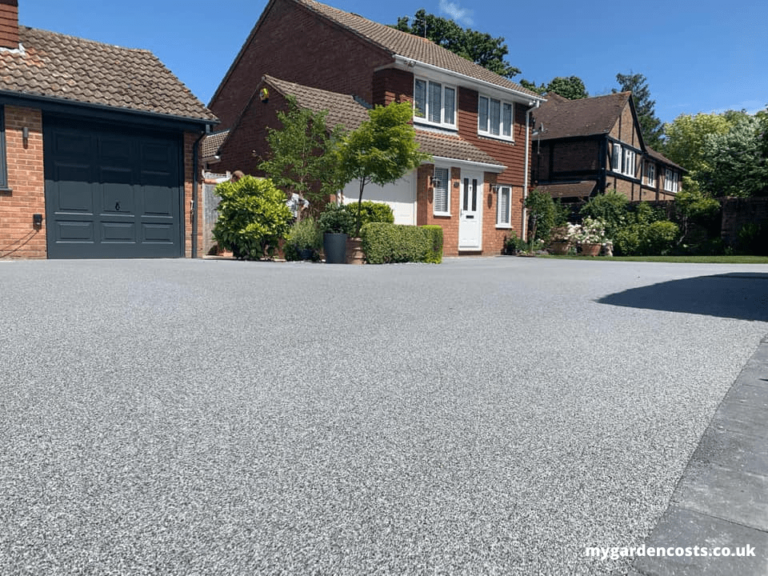Permeable Resin Driveway A Sustainable Choice
Permeable resin driveway offers a stylish and environmentally friendly alternative to traditional asphalt or concrete driveways. This innovative paving solution combines aesthetic appeal with practical benefits, making it an excellent choice for homeowners seeking a sustainable and visually appealing outdoor space. It’s crafted from specialized resin materials designed to absorb rainwater, reducing runoff and promoting water conservation.
From installation and design considerations to maintenance and environmental impact, this comprehensive guide explores the many facets of permeable resin driveways. We’ll delve into the composition, benefits, and various design possibilities to help you make an informed decision about incorporating this modern paving option into your property.
Introduction to Permeable Resin Driveways
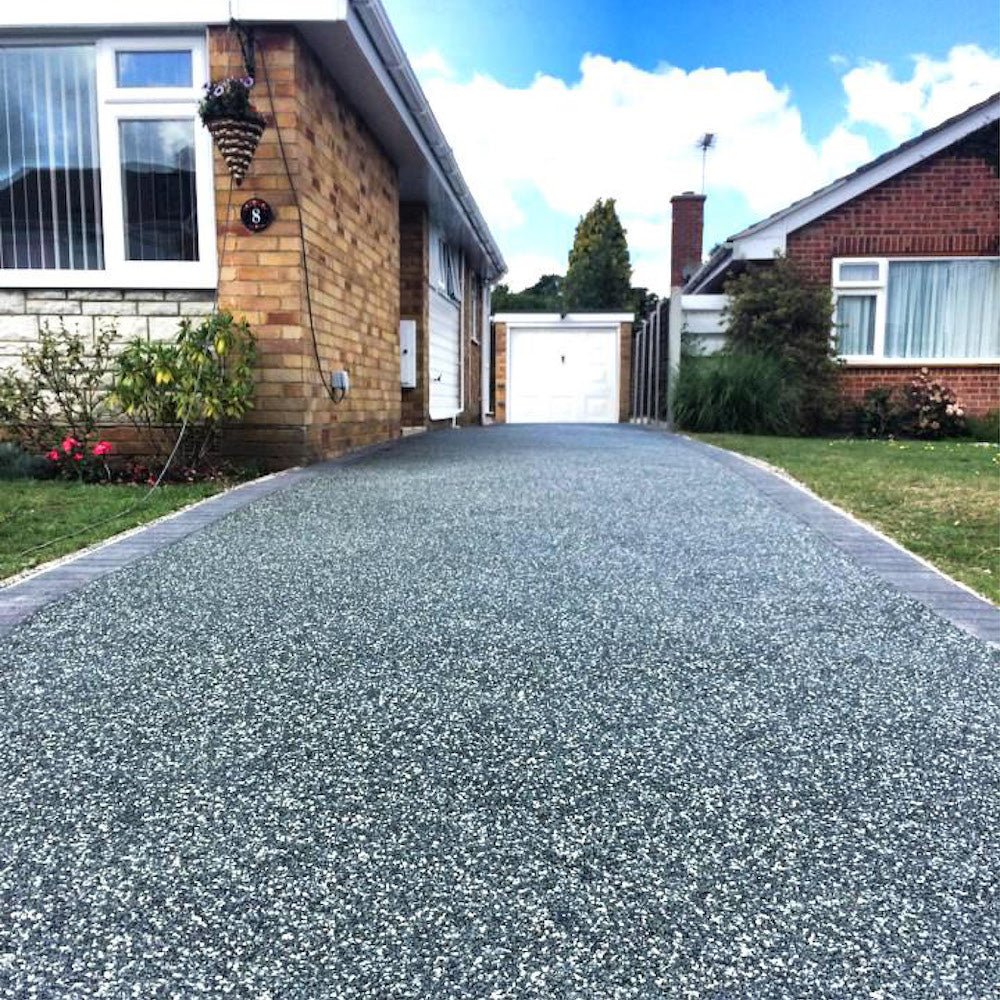
Permeable resin driveways represent a contemporary approach to paving, blending aesthetic appeal with environmental consciousness. These innovative surfaces offer a durable and visually attractive alternative to traditional asphalt or concrete, while also promoting water infiltration into the ground. This approach addresses concerns related to stormwater runoff and supports healthier local ecosystems.
Permeable resin driveways are composed of a specialized blend of high-performance polymers, aggregates, and additives. The manufacturing process typically involves careful mixing of these components to create a strong, yet porous material. This unique composition allows water to percolate through the surface, reducing the burden on municipal drainage systems and mitigating the risk of flooding.
Composition and Manufacturing Process
The core of permeable resin driveways lies in their unique composition. A mixture of high-quality polymers, often modified to enhance durability and resistance to UV exposure, forms the binding agent. These polymers are carefully combined with selected aggregates, such as crushed stone or recycled materials. The addition of specialized additives further enhances the material’s properties, including its resistance to chemicals and temperature fluctuations. The manufacturing process involves precise metering and mixing of these components to ensure a uniform and consistent product. Quality control measures are rigorously implemented throughout the production stages.
Driveway Designs and Aesthetics
Permeable resin driveways offer a wide array of design options. They can be crafted to mimic the appearance of traditional paving materials, such as cobblestones or patterned concrete. Geometric designs and intricate patterns are also possible, offering homeowners a customizable aesthetic. The ability to create bespoke designs, combined with a wide array of colors and finishes, allows for seamless integration with any architectural style.
Colors and Finishes
A diverse palette of colors and finishes is available for permeable resin driveways. From classic grays and browns to vibrant blues and greens, homeowners can select a color that complements their home’s exterior and landscaping. Finishes range from smooth, matte surfaces to textured options that add visual interest. The versatility in color and finish choices ensures the driveway blends seamlessly with the surrounding environment.
Comparison with Traditional Driveways
| Feature | Permeable Resin | Asphalt | Concrete |
|---|---|---|---|
| Material Properties | High durability, porosity, chemical resistance, and UV resistance | Relatively durable, susceptible to cracking, and limited chemical resistance | Extremely durable, resistant to many chemicals, susceptible to cracking and staining |
| Cost | Generally higher upfront cost than asphalt, lower long-term maintenance cost | Lower upfront cost, potentially higher long-term maintenance due to cracking and repairs | Higher upfront cost than asphalt, moderate long-term maintenance cost |
| Environmental Impact | Reduced stormwater runoff, supports local ecosystems, and often uses recycled materials. | Increased stormwater runoff contributes to urban flooding | Increased stormwater runoff, limited use of recycled materials |
| Maintenance | Low maintenance, requires periodic cleaning and inspection | Requires regular maintenance, including crack sealing and repairs | Requires regular maintenance, including sealing and repairs |
This table highlights the key differences between permeable resin, asphalt, and concrete driveways, emphasizing the environmental advantages and material properties of permeable resin. These differences contribute to a more sustainable and cost-effective long-term solution for driveways.
Benefits and Advantages of Permeable Resin Driveways
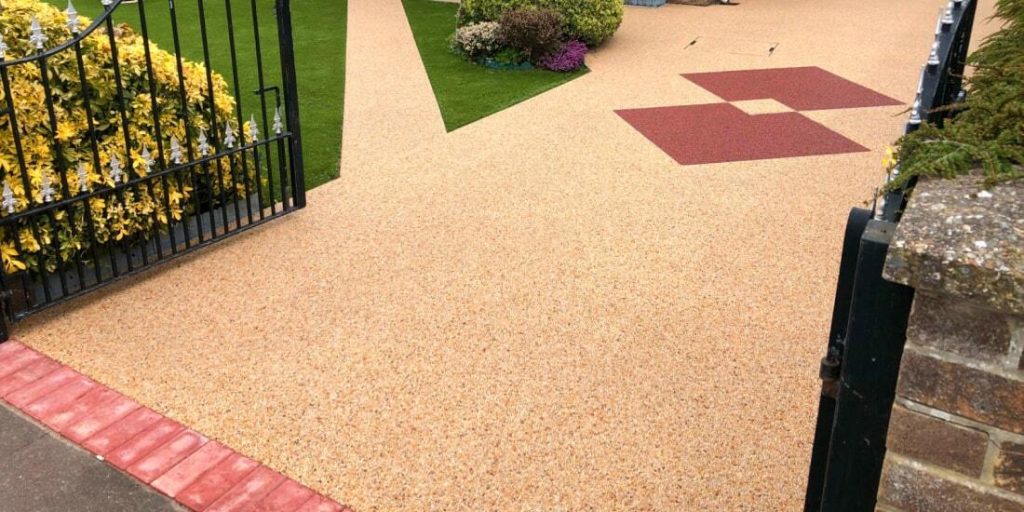
Permeable resin driveways offer a compelling alternative to traditional paving solutions, presenting a range of environmental, practical, and aesthetic benefits. Their unique design allows for superior water absorption, reducing runoff and mitigating stormwater management challenges. These innovative driveways are also designed for long-term durability and low maintenance, making them a worthwhile investment.
Environmental Benefits
Permeable resin driveways significantly contribute to sustainable urban development by effectively managing stormwater runoff. Unlike impermeable surfaces, these driveways allow rainwater to infiltrate the ground, replenishing groundwater supplies and reducing the strain on municipal drainage systems. This reduced runoff can also minimize flooding risks in surrounding areas. By promoting water absorption, permeable resin driveways contribute to a healthier ecosystem.
Durability and Maintenance
Permeable resin driveways are engineered for exceptional durability, capable of withstanding the rigors of daily use and environmental stresses. The resin-based material is highly resistant to cracking, chipping, and fading, ensuring a long-lasting surface. Maintenance requirements are generally low, with routine cleaning and occasional sealant applications sufficient to maintain the driveway’s pristine appearance and performance. The low-maintenance aspect is a significant advantage over traditional concrete driveways that require more extensive repairs and upkeep over time.
Aesthetic Advantages
Permeable resin driveways provide ample design flexibility. A wide array of colors and textures is available, allowing homeowners to tailor the aesthetic of their driveway to match their home’s architecture and personal preferences. Modern design elements, such as intricate patterns and custom color blends, can transform the driveway into a visually appealing focal point. This allows for personalization and enhances the overall curb appeal of the property.
Cost-Effectiveness
While the initial investment for permeable resin driveways might appear higher compared to conventional asphalt or concrete, the long-term cost-effectiveness often surpasses that of other options. The reduced need for costly repairs, the lowered maintenance expenses, and the potential for property value appreciation due to the environmentally conscious design contribute to a more economical choice in the long run. These benefits can offset the initial investment cost over the lifespan of the driveway.
Comparative Cost Analysis
| Feature | Permeable Resin Driveway | Traditional Concrete Driveway |
|---|---|---|
| Initial Cost | Potentially higher | Lower |
| Maintenance Costs (10 years) | Lower | Higher |
| Water Runoff Reduction | Significant | Minimal |
| Property Value Impact | Potentially positive | Neutral or slightly negative |
| Environmental Impact | Positive | Negative (due to runoff) |
This table highlights the potential cost savings and long-term maintenance benefits of permeable resin driveways compared to traditional concrete alternatives. The long-term benefits often outweigh the initial investment, making them a valuable long-term investment.
Installation and Construction of Permeable Resin Driveways
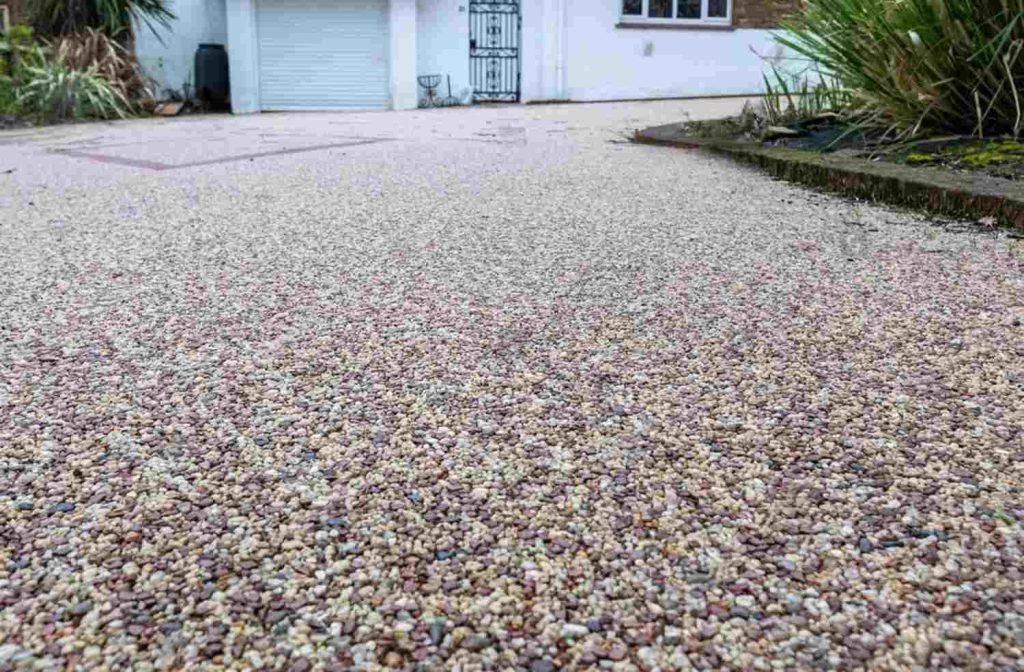
Installing a permeable resin driveway involves a meticulous process that requires careful planning and execution. Proper installation ensures the longevity and functionality of the driveway, minimizing potential issues and maximizing its lifespan. The intricate steps involved in site preparation, material application, and finishing touches are crucial for a successful outcome.
Careful attention to detail during each stage is essential to achieving a high-quality, durable, and aesthetically pleasing permeable resin driveway. This detailed guide articulates the key steps and considerations for a successful installation.
Site Preparation
Thorough site preparation is paramount for a successful permeable resin driveway installation. This stage involves several crucial steps, each contributing to a stable and level foundation for the resin. Uneven surfaces or poorly compacted soil can lead to significant issues down the line, impacting the overall performance and longevity of the driveway.
- Surface Leveling and Grading: Precise leveling and grading of the existing surface are critical to prevent future issues with water pooling or uneven settling. This often involves removing excess soil, compacting the ground, and creating a level surface to receive the permeable resin base. This process ensures that water drains effectively, preventing potential damage from standing water.
- Soil Compaction: Adequate soil compaction is vital to ensure stability. This process involves using specialized equipment to compact the soil beneath the driveway, eliminating air pockets and providing a solid foundation. This step is crucial for the resin’s long-term performance and the structural integrity of the driveway.
- Drainage System Installation: Installing a proper drainage system is a critical component. This involves installing drainage pipes and channels to direct rainwater away from the driveway and prevent water from accumulating. This is a critical aspect of preventing water damage and maintaining the integrity of the resin.
- Marking and Layout: Accurately marking and laying out the driveway is important to ensure precise dimensions and alignment. This step defines the boundaries and layout of the resin surface, which helps in achieving the desired aesthetic and ensures a seamless integration with the surrounding landscape.
Material Application
The application of permeable resin materials is a crucial phase in the installation process. The consistency and accuracy of this stage directly impact the final appearance and performance of the driveway. Several methods are used for the application, each with its advantages and considerations.
- Resin Mixing and Application: Resin materials are typically mixed according to the manufacturer’s specifications, ensuring proper consistency and viscosity for smooth application. Using appropriate tools and equipment for spreading and leveling the resin is crucial for achieving an even and aesthetically pleasing finish. This involves proper handling of materials and adherence to safety precautions.
- Paver or Slab Installation: Once the resin is applied, pavers or slabs are carefully placed within the resin, ensuring they are securely embedded. Using a level to ensure a consistent height is vital. The selection of pavers or slabs depends on the desired aesthetic and functional requirements. This includes the specific installation techniques for each type.
Finishing Touches
Finishing touches are essential to complete the installation process. These steps ensure the durability and aesthetics of the permeable resin driveway.
- Curing and Sealing: Allowing the resin to cure according to the manufacturer’s recommendations is vital for optimal performance. Sealing the resin surface protects it from environmental factors and enhances its longevity. Proper curing time and sealing procedures are essential to ensure the driveway’s durability and resistance to wear and tear.
- Quality Control: Thorough quality control measures ensure the finished product meets the required standards. This includes verifying the proper application of materials, checking for any imperfections, and ensuring the overall structural integrity of the driveway. This process involves careful inspection to ensure adherence to specifications.
Tools and Equipment
The proper selection and use of tools and equipment are essential for successful installation.
- Essential Tools: A comprehensive list of tools and equipment includes various types of hand tools, power tools, and specialized equipment for site preparation, material handling, and application. The specific tools required will depend on the complexity of the project and the chosen installation method.
Installation Procedures and Safety Measures
| Installation Procedure | Safety Measures |
|---|---|
| Site preparation | Wear appropriate personal protective equipment (PPE), including safety glasses and gloves. Use caution when handling heavy materials and equipment. Inspect equipment before use to ensure functionality and safety. |
| Resin mixing and application | Follow the manufacturer’s instructions for mixing and handling resin materials. Ensure adequate ventilation during application to minimize exposure to fumes. Use appropriate safety equipment. |
| Paver/Slab installation | Use proper lifting techniques and avoid overexertion. Ensure the area is well-lit and free of obstacles. Use caution when handling heavy materials. |
| Curing and sealing | Allow adequate curing time according to manufacturer recommendations. Follow instructions for applying sealant to ensure optimal protection. Wear gloves when handling sealants. |
Design Considerations for Permeable Resin Driveways
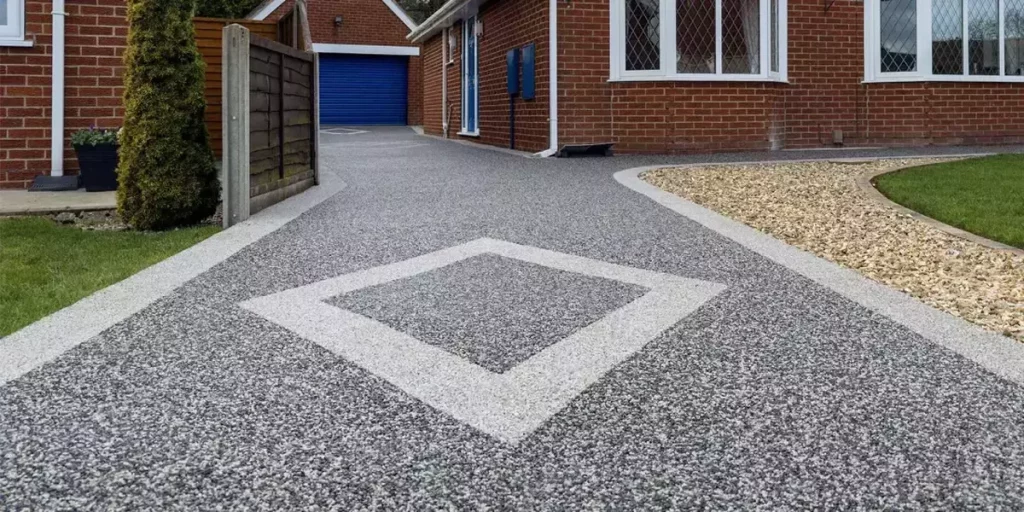
Designing a permeable resin driveway involves careful consideration of various factors, including the property’s unique layout, landscaping needs, and accessibility requirements. A well-designed permeable resin driveway not only enhances the property’s aesthetics but also promotes sustainability and functionality.
Proper planning and design are crucial for ensuring the driveway effectively manages stormwater, integrates seamlessly with the surrounding environment, and caters to the needs of all users. Careful consideration of these factors ensures a long-lasting and beneficial addition to the property.
Choosing the Right Size and Shape
Driveway size and shape are paramount for functionality and aesthetics. The driveway should be appropriately sized to accommodate expected vehicle traffic and visitor flow. Consider factors such as the number of vehicles frequently using the driveway, anticipated guest traffic, and the overall space available on the property. A larger driveway, for example, might accommodate more vehicles, but may also require a greater resin material investment. Careful measurements and calculations are essential.
Shape is also important. A straight, simple shape is often easiest to install, but a curved or angled driveway can add visual appeal and flow better with the property’s landscape. The design should complement the property’s architectural style and surrounding environment.
Integrating with Landscaping and Outdoor Spaces
Effective integration with landscaping and outdoor spaces is crucial for creating a harmonious aesthetic. Permeable resin driveways can be designed to blend seamlessly with the existing landscape. This can be achieved through careful selection of colors and textures that complement the surrounding vegetation and hardscapes. For instance, using a resin color similar to natural stone can create a unified look with a patio or walkway. Careful consideration of plant placement around the driveway’s edges and in the surrounding areas is essential.
Design Considerations for Accessibility and ADA Compliance
Ensuring accessibility for all users is vital. Permeable resin driveways can be designed to meet ADA (Americans with Disabilities Act) guidelines for ramps, slopes, and curb cuts. These features ensure that the driveway is accessible to individuals with disabilities. The design should prioritize a smooth, even surface with proper slopes for safe and easy navigation.
Examples of Different Driveway Layouts
Several driveway layouts effectively utilize permeable resin materials. A classic, straight-line driveway can be seamlessly incorporated into a modern or traditional landscape. A curved driveway, especially when strategically placed to optimize space or create visual interest, can complement a more organic landscape. An L-shaped driveway, particularly helpful in corner lots, can maximize space while still adhering to ADA guidelines. The design can incorporate permeable paving within the driveway itself to improve water absorption.
Design Considerations Table
| Category | Description | Example |
|---|---|---|
| Site Analysis | Thorough assessment of the property’s topography, drainage patterns, and existing infrastructure. | Evaluating soil type, slope, and proximity to water bodies. |
| Drainage Patterns | Understanding how water flows across the property and how the driveway can effectively manage stormwater runoff. | Designing the driveway with appropriate slopes to direct water away from the structure. |
| Aesthetic Integration | Blending the driveway with the surrounding landscaping and architecture. | Using colors and textures that complement the existing property. |
Maintenance and Care of Permeable Resin Driveways

Source: stephenslandscaping.com
Permeable resin driveways, while durable, require consistent upkeep to maintain their aesthetic appeal and longevity. Proper maintenance minimizes the risk of damage from environmental factors and ensures the driveway continues to function effectively as a permeable surface. This section details essential maintenance procedures, preventative measures, and strategies for addressing common issues.
Cleaning Procedures
Regular cleaning is crucial for preserving the appearance and functionality of a permeable resin driveway. Routine sweeping or pressure washing with a low-pressure setting can effectively remove debris, dirt, and loose particles. For stubborn stains, consider using a mild detergent solution, but avoid harsh chemicals that could damage the resin’s surface. Always test any cleaning agent in an inconspicuous area first to ensure compatibility. Post-cleaning, ensure thorough rinsing to remove all residue.
Repair Strategies, Permeable resin driveway
Minor damage, such as hairline cracks or small areas of discoloration, can be addressed through targeted repair techniques. For minor cracks, specialized resin patching compounds are available to effectively fill the gaps and maintain the driveway’s integrity. For more extensive repairs, professional assistance might be necessary to ensure a durable and aesthetically pleasing outcome.
Preventing Freeze-Thaw Damage
Freeze-thaw cycles can cause expansion and contraction of the resin, potentially leading to cracks and damage. To mitigate this, consider using a sealant or protective coating to shield the surface. Applying a sealant will also enhance the longevity of the driveway by acting as a barrier against the elements. Additionally, ensuring proper drainage around the driveway is crucial to prevent water accumulation, which can exacerbate the impact of freeze-thaw cycles.
Handling Common Maintenance Issues
Stains, often a result of spills or exposure to certain substances, can be addressed using appropriate cleaning solutions. For example, oil-based stains might require specialized cleaning agents, while general dirt and grime can be handled with a mild detergent solution. Addressing minor issues promptly prevents them from becoming more significant problems, impacting the driveway’s overall appearance and structural integrity.
Regular Inspections and Preventive Maintenance
Regular visual inspections of the driveway are vital for early detection of potential issues. Inspecting for cracks, stains, or uneven surfaces will enable timely intervention, preventing minor problems from becoming major ones. A proactive approach to maintenance helps extend the lifespan of the permeable resin driveway and minimizes the need for costly repairs.
Preventative Maintenance Schedule
| Task | Frequency |
|---|---|
| Sweep or blow debris | Weekly (or as needed) |
| Pressure wash (low pressure) | Quarterly |
| Inspect for cracks or damage | Monthly |
| Address minor repairs (e.g., cracks, stains) | As needed |
| Sealant application | Annually or as recommended by the manufacturer |
Environmental Impact of Permeable Resin Driveways
Permeable resin driveways are gaining traction as an environmentally conscious alternative to traditional asphalt or concrete paving. Their unique design significantly impacts stormwater management and water conservation, contributing to a healthier urban environment. This section explores the positive environmental footprint of these innovative driveways.
Stormwater Management and Water Conservation
Permeable resin driveways effectively manage stormwater by allowing rainwater to infiltrate the ground. This contrasts sharply with conventional impervious surfaces, which channel rainwater directly into storm drains, potentially leading to flooding and water pollution. By promoting natural water absorption, permeable resin driveways reduce the strain on existing drainage systems and lessen the risk of localized flooding, especially during heavy rainfall events. This improved water management translates into a more sustainable and resilient urban landscape.
Reducing Urban Runoff and Flooding
The ability of permeable resin driveways to absorb rainfall directly reduces the volume of runoff entering storm drains. This substantial reduction in urban runoff lessens the burden on wastewater treatment plants and minimizes the risk of flooding in low-lying areas. By allowing water to percolate into the ground, permeable resin driveways effectively mitigate the adverse effects of heavy rainfall on urban infrastructure and the surrounding environment. This translates to a more stable and less vulnerable urban ecosystem. The water that is absorbed also recharges groundwater supplies, which is essential for maintaining healthy ecosystems.
Examples and Environmental Impact
Several municipalities and residential areas have successfully implemented permeable resin driveways. One notable example is a development in [Specific location, e.g., Austin, Texas] where permeable resin driveways were used throughout the community. The result was a significant reduction in stormwater runoff and a notable improvement in groundwater recharge. Similarly, a project in [Specific location, e.g., Seattle, Washington] saw a reduction in flooding in nearby streets during heavy rain events due to the installation of permeable resin driveways in residential areas. These real-world examples highlight the practical application and positive environmental impact of permeable resin driveways in diverse urban settings.
Sustainability Benefits
The sustainability benefits of permeable resin driveways extend beyond reduced runoff. By reducing the need for extensive stormwater management infrastructure, they contribute to lower infrastructure costs for municipalities. Furthermore, the reduction in flooding events safeguards public safety and property. These cost-saving and safety-enhancing factors contribute to the long-term economic viability of these sustainable solutions. Reduced runoff also minimizes pollution of waterways and helps maintain a healthy ecosystem.
Comparison of Environmental Benefits
| Feature | Permeable Resin Driveways | Conventional Paving Materials (e.g., Asphalt, Concrete) |
|---|---|---|
| Stormwater Management | Promotes water infiltration, reducing runoff | Channels water directly to storm drains, increasing runoff |
| Water Conservation | Recharges groundwater supplies, conserving water resources | Contributes to water scarcity by increasing runoff |
| Urban Runoff Reduction | Reduces the volume of runoff entering storm drains | Increases the volume of runoff entering storm drains |
| Flood Mitigation | Reduces the risk of localized flooding | Increases the risk of localized flooding |
| Environmental Impact | Promotes a healthier urban ecosystem | Can contribute to water pollution and ecosystem disruption |
| Sustainability | Highly sustainable, reducing reliance on infrastructure | Less sustainable, increasing reliance on infrastructure |
Case Studies and Real-World Examples
Permeable resin driveways, while offering numerous advantages, are best understood through real-world applications. Examining successful installations across diverse climates and conditions provides valuable insights into their performance and potential challenges. This section delves into specific case studies, highlighting the design choices, installation processes, and long-term outcomes of these innovative driveways.
The following examples illustrate the successful implementation of permeable resin driveways in various locations, showcasing their adaptability and effectiveness in different settings. Analyzing these case studies helps to understand the nuanced factors influencing their performance and longevity.
Successful Implementations in Residential Settings
Residential installations often prioritize aesthetic appeal and functionality. The integration of permeable resin driveways into existing landscapes requires careful consideration of the surrounding environment. Successful installations balance the material’s unique properties with the homeowner’s design preferences.
- A suburban home in the Midwest utilized a permeable resin driveway with a custom design incorporating decorative aggregate. The aggregate complemented the existing landscaping and enhanced the curb appeal of the property. The installation resulted in a durable and visually appealing driveway that effectively managed stormwater runoff, minimizing the impact on the surrounding environment. The homeowner reported satisfaction with the material’s low-maintenance characteristics.
- In a coastal region, a permeable resin driveway was designed to withstand the harsh weather conditions. The driveway’s reinforced structure and UV-resistant resin provided excellent durability and longevity. The homeowner appreciated the resilience of the material against extreme temperatures and salt spray. Furthermore, the permeable nature of the resin helped mitigate water damage and flooding issues common in the region.
Commercial Applications and Considerations
Commercial applications for permeable resin driveways offer a unique set of challenges and opportunities. These installations require a robust design to accommodate high traffic and potential heavy equipment use. Proper planning and execution are crucial for successful implementation.
- A retail store in a high-traffic area successfully implemented a permeable resin driveway. The driveway’s high-performance resin and reinforced base provided durability and stability under heavy pedestrian and vehicular traffic. The permeable nature of the resin also minimized runoff and flooding, improving the surrounding infrastructure. The store owner reported reduced maintenance costs and enhanced pedestrian safety, due to the non-slip characteristics of the resin.
- A parking lot for a light industrial facility incorporated permeable resin. The design included drainage channels integrated into the resin to direct water effectively. The use of high-quality resin and robust construction ensured longevity and durability, even with the presence of heavy machinery. The result was a cost-effective and environmentally responsible solution for managing stormwater runoff and minimizing erosion.
Performance Metrics and Long-Term Observations
Evaluating long-term performance is essential for assessing the viability of permeable resin driveways. Factors such as durability, maintenance, and aesthetic appeal are key indicators of success.
| Case Study | Location | Design Features | Installation Outcomes | Long-Term Performance |
|---|---|---|---|---|
| Suburban Home (Midwest) | Suburban area | Custom design, decorative aggregate | Durable, visually appealing, and managed stormwater runoff | High satisfaction with low-maintenance characteristics |
| Coastal Home | Coastal region | Reinforced structure, UV-resistant resin | Resilient to harsh weather, mitigated water damage | Excellent durability against extreme temperatures and salt spray |
| Retail Store | High-traffic area | High-performance resin, reinforced base | Durable under heavy traffic, minimized runoff and flooding | Reduced maintenance costs, enhanced pedestrian safety |
| Industrial Parking Lot | Light industrial facility | Drainage channels, high-quality resin, robust construction | Long-lasting, cost-effective, managed stormwater runoff | Minimized erosion, maintained functionality under heavy machinery |
Wrap-Up: Permeable Resin Driveway
In conclusion, permeable resin driveways represent a significant advancement in sustainable landscaping. Their ability to manage stormwater, coupled with their aesthetic versatility and long-term durability, positions them as a compelling choice for environmentally conscious homeowners. This guide has highlighted the key aspects of permeable resin driveways, equipping you with the knowledge to navigate the process of choosing, installing, and maintaining this innovative paving option. Ultimately, the choice to incorporate a permeable resin driveway is a thoughtful investment in both your property and the environment.
